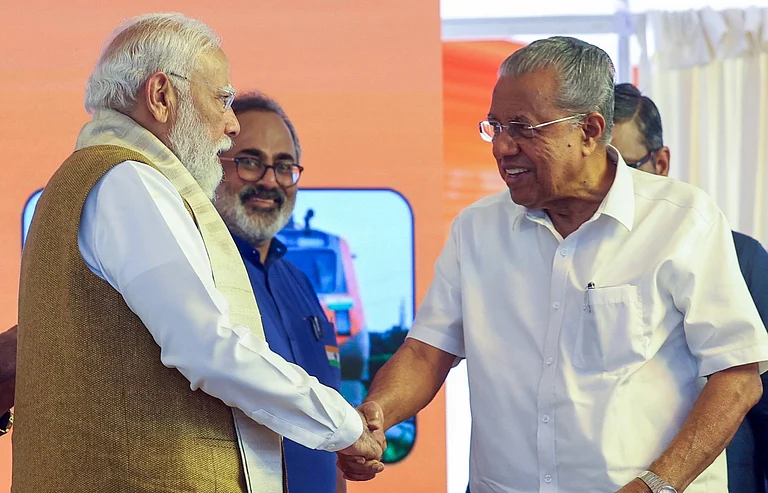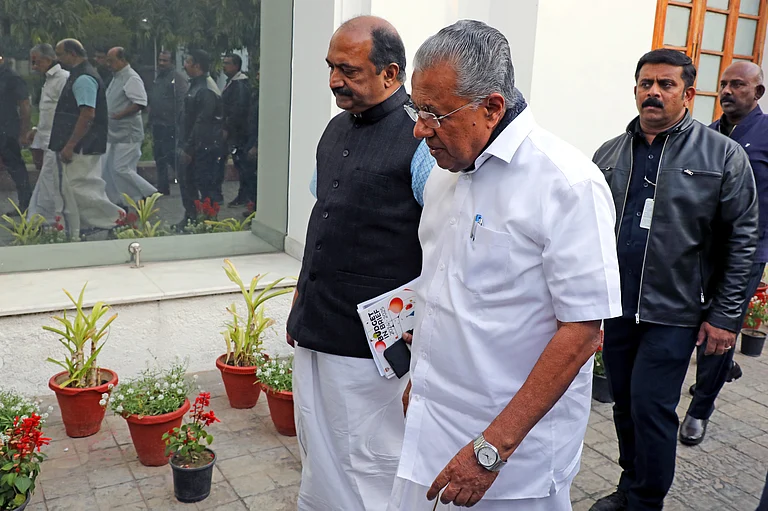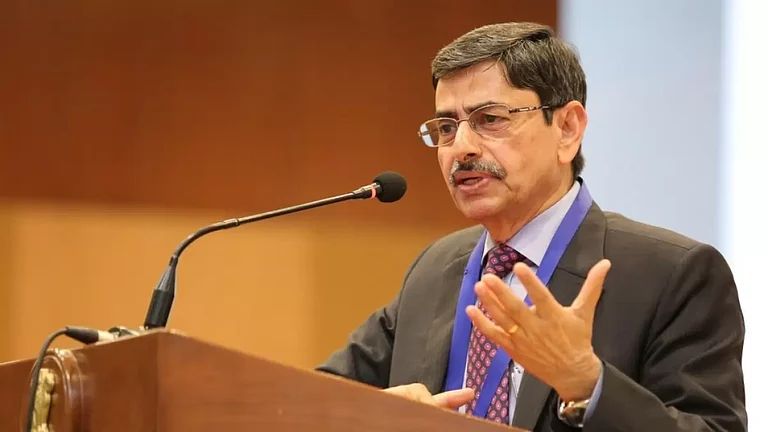The Congress and other allies of the ruling DMK in Tamil Nadu have officially boycotted a ‘high-tea’ party hosted by state Governor RN Ravi on January 26, accusing him of acting as a stooge of the BJP and the RSS.
As per the Constitution of India, the Republic’s founding document, the Governor of a state is expected to act as the custodian of constitutionalism and only as per “the aid and advice” of the Council of Ministers. On January 26, 2024, when India celebrates 76 years of the formal adoption of this very document – the Constitution – the tussle between governors and states ruled by opposition parties presents an immediate threat to the principles of the constitution.
While the ruling DMK is yet to issue any official statement, the party had boycotted a similar event hosted by RN Ravi on Independence Day last year.
Tamil Nadu is not an isolated case. Such frequent conflicts and interference in state affairs are being seen as attempts by the BJP to make in-roads into those states where they are not currently in power – all five southern states among others.
The governor is supposed to function as an ‘apolitical’ constitutional head of the state. However, their allegiance to the BJP-led government is overtly visible in their constant hostilities with the state government.
Pending bills
Governors of opposition-ruled states have often been accused of delaying assent to bills and subsequently blocking the state’s development programmes.
In fact, the primary bone of contention between the DMK government and Governor RN Ravi has been over the latter’s delay in giving assent to bills passed by the state assembly. As of November 2023, at least 10 Bills were pending for assent since 2020 – most of which were related to empowering the state government with the power to appoint the Vice Chancellor of the universities instead of the Governor.
“What was the governor doing for three years?,” the Supreme Court passed such remarks last year, following which RN Ravi withdrew assent for the concerned bills and returned them to the state government. The state assembly re-adopted the said Bills. The top court came down heavily on the governor for acting on these bills only once the court issued notice to him.
Also Read: The Governor-CM Tussle That Brought Down Maharashtra Government
In Telangana, the previous Bharat Rashtra Samithi (BRS) government had accused Governor Tamilisai Soundararajan of sitting on multiple Bills for seven months including two key Bills — The University of Forestry Telangana Bill, 2022 and The Telangana Universities Common Recruitment Board Bill, 2022. The government approached the Supreme Court over the issue. Hours before the court was to hear the case, the Governor’s office sent communication to the government giving updates on the status of the pending Bills.
Control over universities
The tussle between Kerala’s ruling government and its Governor has majorly been over power of educational spaces. Similar to Tamil Nadu, Kerala governor’s role as Chancellor of Universities in the state has been contested by the government and university authorities as well.
While universities have served as spaces where political values are asserted, in the present day, governors appointed as chancellors of universities have been known to fall to partisan politics or misuse their powers, legal academic professor RK Raizada wrote in the journal of the Indian Law Institute.
To mention one such instance – 2023 was the first year in which Governor Mohammed Arif Khan nominated members affiliated to the Akhil Bharatiya Vidyarthi Parishad (ABVP), the RSS’ student wing, to the senates of two universities – University of Kerala and University of Calicut – by rejecting several names recommended by the university (as was accused by student associations). Not only did this decision spark protests by Left-led organisations on Kerala’s streets, it also elevated fears within the CPI(M) about the BJP possibly making its way into academic bodies of state’s institutions.
Disagreeing with the state – publicly
Apart from control over universities, governors have openly criticised their respective opposition chief ministers – making a public display of their disagreements with the state government.
The ongoing tussle between the Kerala government and Governor began in 2020 during the tenure of the previous LDF Government, when the Centre was deliberating on the Citizenship Amendment Act and the Kerala government unanimously passed a resolution opposing the same. Governor Mohammed Arif Khan, who was meant to read out a ‘code of conduct’ issued by CM Pinarayi Vijayan, chose to express his displeasure over reading a certain paragraph related to the CAA.
Infamously, in January last year, Gov. Ravi skipped portions of a government-prepared customary address, on the first day of the House’s winter session, which included some key statements regarding how the state must ensure that it ‘continues to be a haven of peace and tranquility and free from any form of violence’.
Taking offence, Stalin interrupted RN Ravi’s speech and expressed regret that the Governor had avoided certain portions of the prepared address. The chief minister moved a resolution which was adopted. What ensued, witnessed RN Ravi walking out of the House immediately – perhaps the first time that such an unprecedented incident took place in the history of the Assembly.
Also Read: Punjab CM Bhagwant Mann Vs Governor Banwarilal Purohit
Similarly, the year of 2022 was a politically turbulent one for Telangana wherein the then Chief Minister KCR and Governor Tamilisai Soundararajan would often publicly trade barbs at each other.
The Governor had once publicly alleged that her phone was being tapped by BRS workers and that there was an “undemocratic situation” in the state. She had also alleged that the state officials were not extending mandatory protocol facilities for her official visits and that they were being discriminatory to a woman governor.
On the other hand, KCR boycotted every meeting convened by the Prime Minister in Delhi in the months leading up to the assembly elections and also refused to allow the Governor to address the customary budget session of the state assembly in 2022.
Also Read: Can A Governor Dismiss State Ministers?
Conflicts on similar lines have erupted in other non-BJP ruled states including West Bengal, Punjab, Delhi and Maharashtra as well.
Time and again, the Supreme Court has emphasised the importance of ensuring that governance of states is not taken over by the central government. The most noteworthy of those, quoting Dr B.R. Ambedkar, was that India is federal, not federal with unitary features. However, increasing hostilities between states and their governors pose an imminent threat to the federal structure of the government.






















